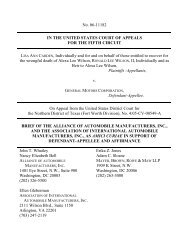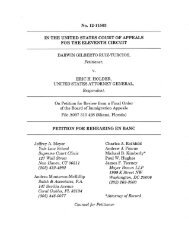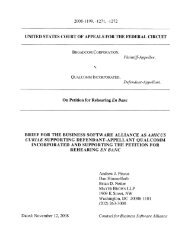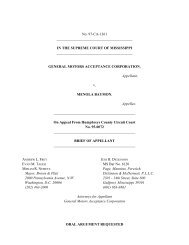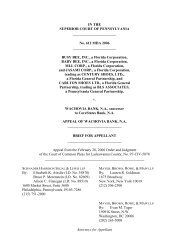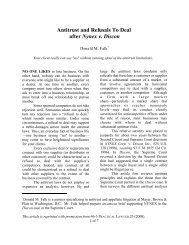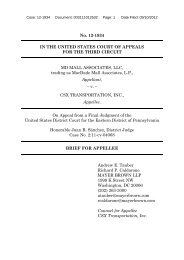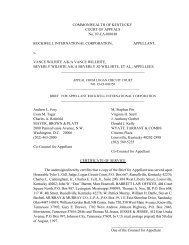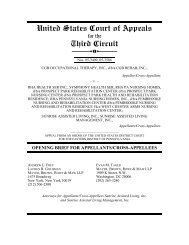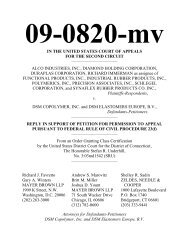No. 5-99-0830 IN THE APPELLATE COURT OF ... - Appellate.net
No. 5-99-0830 IN THE APPELLATE COURT OF ... - Appellate.net
No. 5-99-0830 IN THE APPELLATE COURT OF ... - Appellate.net
You also want an ePaper? Increase the reach of your titles
YUMPU automatically turns print PDFs into web optimized ePapers that Google loves.
legal remedy is adequate, the imposition of a constructive trust is erroneous”). In this case,<br />
the circuit court did not making any findings suggesting that the actual damages already<br />
awarded to the class were an inadequate remedy for the harm allegedly inflicted on the ICFA<br />
class. Under those circumstances, the court had no power to invoke an equitable remedy in<br />
order to provide plaintiffs with additional damages above and beyond their actual damages.<br />
Indeed, the language of the statute itself makes that clear by giving the court the power to<br />
award actual damages “or” any other relief it deems proper.<br />
The disgorgement damages the court awarded must also be vacated because they<br />
were duplicative of the specification damages awarded by the jury. It is well settled that “a<br />
plaintiff seeking compensation for an injury under multiple theories of recovery may only<br />
recover once.” Bragado v. City of Zion, 839 F. Supp. 551, 555 (N.D. Ill. 1<strong>99</strong>3) (citations<br />
omitted); see also Majcher v. Laurel Motors, Inc., 287 Ill.App.3d 719, 729 (2d Dist. 1<strong>99</strong>7);<br />
Kipnis v. Meltzer, 253 Ill.App.3d 67, 68 (1st Dist. 1<strong>99</strong>3). That is particularly true when the<br />
remedy is an equitable one: duplicative damages constitute punishment rather than<br />
compensation; it is “elementary” that equity abhors a penalty. Grounds v. VanLaningham,<br />
256 Ill. App. 540, 546-47 (3d Dist. 1930). Yet the court’s award of “disgorgement” damages<br />
allowed plaintiffs to recover the same “savings” State Farm realized from the specification<br />
of non-OEM parts twice — once as “specification” damages and once as “disgorgement”<br />
damages. 61/<br />
Indeed, until the judgment was entered, plaintiffs themselves repeatedly<br />
conceded that they could not recover disgorgement damages if they fully recovered the<br />
61/<br />
The two figures Dr. Mathur offered for State Farm’s “savings” differ because the<br />
specification damages were based on the 10½-year breach of contract class period, while<br />
disgorgement damages were based on the 3½-year ICFA class period. R. 7437-38.<br />
-134-



